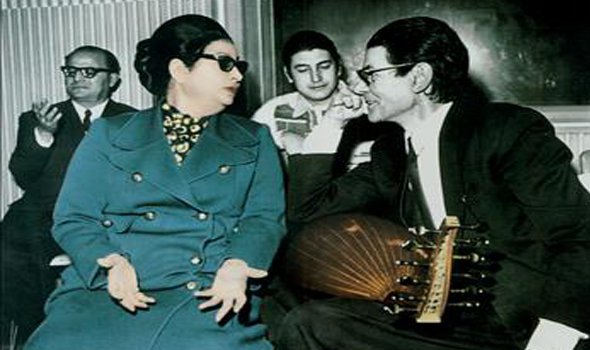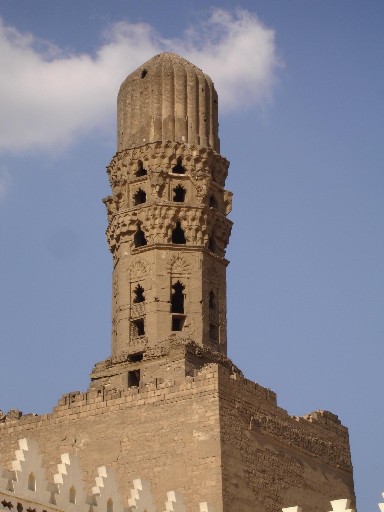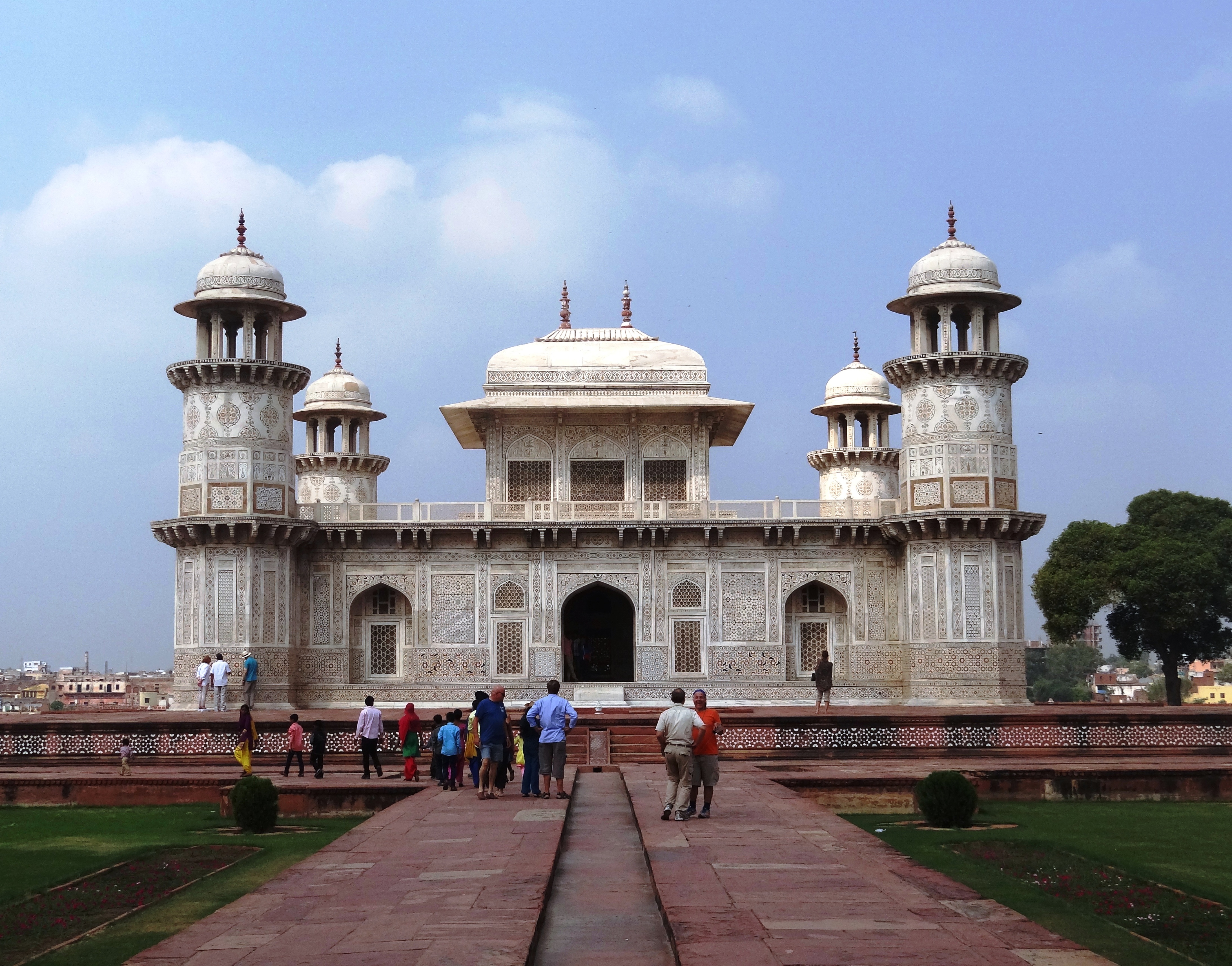|
Salama Hegazi
Salama Hegazi ( ar, سلامة حجازي) born 1852, died October 4, 1917 was an Egyptian singer. He was a pioneer of musical theatre in Egypt in the first half of the 20th century. Born Salama Ibrahim Hegazi, he was locally known as El Sheikh Salama. In 1852 in Alexandria, he recited the Qur'an, after memorising the entire book. Many famous singers in Egypt, such as Munira Mahdia and Mohamed Abdel Wahab, have sung his music. He promoted Sayed Darwish, who considered him an inspiration. Iskandar Farah and Salama founded a theater company in 1891. In 1914, with George Abiad, he helped in the formation of a new group and they worked together until his death, despite being paralyzed at the end of his days he continued to appear on stage. He has been credited with many forms of musical theatre and operetta music. Notable work *With Iskandar Farah: **African **Talimak **Ataiwaq **King of the reservoirs. *Solo: **Saladin *With George Abiad: **Egypt **The Heart of a Woman **A ... [...More Info...] [...Related Items...] OR: [Wikipedia] [Google] [Baidu] |
Salama Hejazi - Al-Alam, V 3, P 173
Salama or Salamah may refer to: People Given name * Umm Salama (circa 596–680), wife of Muhammad * Salama Abu Hashim, one of the companions of Muhammad * Umm Salama bint Ya'qub al-Makhzumi, Arab nobility and principal wife of Arab caliph al-Saffah (r. 750–754). * Salamah ibn al-Akwa (died c. 757 or 781), one of the companions of Muhammad * Salamah ibn Dinar al-Madani (died c. 757 or 781), Persian Muslim ascetic, jurist and narrator of hadith * Salama bint Said, later Emily Ruete (1844–1924), daughter of Sultan Sayyid Said of Zanzibar and Oman * Salama Moussa (1887–1958), notable Egyptian journalist and reformer * Salama al-Khufaji, member of the Interim Iraq Governing Council (2003–2004) Royalty * Aba Salama or Frumentius (died c. 360), bishop of Aksum * Salama II (Aksum) or Minas of Aksum (6th century), bishop of Aksum * Sallamah Umm Abdallah (714–775), mother of Abbasīd caliph al-Mansur * Abuna Salama II (r. 1348–1388) * Abuna Salama III (r. 1841–1867) * Sa ... [...More Info...] [...Related Items...] OR: [Wikipedia] [Google] [Baidu] |
Saladin
Yusuf ibn Ayyub ibn Shadi () ( – 4 March 1193), commonly known by the epithet Saladin,, ; ku, سهلاحهدین, ; was the founder of the Ayyubid dynasty. Hailing from an ethnic Kurdish family, he was the first of both Egypt and Syria. An important figure of the Third Crusade, he spearheaded the Muslim military effort against the Crusader states in the Levant. At the height of his power, Ayyubid territorial control spanned Egypt, Syria, Upper Mesopotamia, the Hejaz, Yemen, the Maghreb, and Nubia. Alongside his uncle Shirkuh, a military general of the Zengid dynasty, Saladin was sent to Egypt under the Fatimid Caliphate in 1164, on the orders of Nur ad-Din. With their original purpose being to help restore Shawar as the to the teenage Fatimid caliph al-Adid, a power struggle ensued between Shirkuh and Shawar after the latter was reinstated. Saladin, meanwhile, climbed the ranks of the Fatimid government by virtue of his military successes against Crusader assault ... [...More Info...] [...Related Items...] OR: [Wikipedia] [Google] [Baidu] |
Egyptian Composers
The following is a list of Egyptian music composers. Pioneers According to the work of the Egyptian musicologist Samha El-Kholy, the first generation of Egyptians to begin writing in modern Egyptian classical style were born around the turn of the 20th century. Among the most celebrated composers in Egyptian history who lived in the 20th century are Sayed Darwish, Mohamed El Qasabgi, Baligh Hamdi, Mohamed Fawzi, Zakariya Ahmad, Mohamed Abdel Wahab, Riad El Sunbati and many others. First generation *Sayed Darwish (1892–1923) *Mohamed El Qasabgi (1892–1966) * Zakariya Ahmad (1896–1961) * Yusef Greiss (1899–1961) * Abu Bakr Khairat (1910–1963) * Hasan Rashid (1896–1969) * Aziz El-Shawan (1916–1993) * Dawood Hosni (1870–1937) Second generation *Mohamed Abdel Wahab (1902–1991) * Riad El Sunbati (1906–1981) * Farid al-Atrash (1910–1974) * Kamel El-Remali (b. 1922), * Awatef Abdel Karim (1931–2021) * Gamal Abdel-Rahim (1924–1988) * Sayed Awad ( ... [...More Info...] [...Related Items...] OR: [Wikipedia] [Google] [Baidu] |
Egyptian Nationalists
Egyptian describes something of, from, or related to Egypt. Egyptian or Egyptians may refer to: Nations and ethnic groups * Egyptians, a national group in North Africa ** Egyptian culture, a complex and stable culture with thousands of years of recorded history ** Egyptian cuisine, the local culinary traditions of Egypt * Egypt, the modern country in northeastern Africa ** Egyptian Arabic, the language spoken in contemporary Egypt ** A citizen of Egypt; see Demographics of Egypt * Ancient Egypt, a civilization from c. 3200 BC to 343 BC ** Ancient Egyptians, ethnic people of ancient Egypt ** Ancient Egyptian architecture, the architectural structure style ** Ancient Egyptian cuisine, the cuisine of ancient Egypt ** Egyptian language, the oldest known language of Egypt and a branch of the Afroasiatic language family * Copts, the ethnic Egyptian Christian minority ** Coptic language or Coptic Egyptian, the latest stage of the Egyptian language, spoken in Egypt until the 17th centur ... [...More Info...] [...Related Items...] OR: [Wikipedia] [Google] [Baidu] |
People From Alexandria
A person ( : people) is a being that has certain capacities or attributes such as reason, morality, consciousness or self-consciousness, and being a part of a culturally established form of social relations such as kinship, ownership of property, or legal responsibility. The defining features of personhood and, consequently, what makes a person count as a person, differ widely among cultures and contexts. In addition to the question of personhood, of what makes a being count as a person to begin with, there are further questions about personal identity and self: both about what makes any particular person that particular person instead of another, and about what makes a person at one time the same person as they were or will be at another time despite any intervening changes. The plural form "people" is often used to refer to an entire nation or ethnic group (as in "a people"), and this was the original meaning of the word; it subsequently acquired its use as a plural form of per ... [...More Info...] [...Related Items...] OR: [Wikipedia] [Google] [Baidu] |
1917 Deaths
Events Below, the events of World War I have the "WWI" prefix. January * January 9 – WWI – Battle of Rafa: The last substantial Ottoman Army garrison on the Sinai Peninsula is captured by the Egyptian Expeditionary Force's Desert Column. * January 10 – Imperial Trans-Antarctic Expedition: Seven survivors of the Ross Sea party were rescued after being stranded for several months. * January 11 – Unknown saboteurs set off the Kingsland Explosion at Kingsland (modern-day Lyndhurst, New Jersey), one of the events leading to United States involvement in WWI. * January 16 – The Danish West Indies is sold to the United States for $25 million. * January 22 – WWI: United States President Woodrow Wilson calls for "peace without victory" in Germany. * January 25 ** WWI: British armed merchantman is sunk by mines off Lough Swilly (Ireland), with the loss of 354 of the 475 aboard. ** An anti-prostitution drive in San Francisco occurs, and police ... [...More Info...] [...Related Items...] OR: [Wikipedia] [Google] [Baidu] |
1852 Births
Year 185 ( CLXXXV) was a common year starting on Friday (link will display the full calendar) of the Julian calendar. At the time, it was known as the Year of the Consulship of Lascivius and Atilius (or, less frequently, year 938 '' Ab urbe condita''). The denomination 185 for this year has been used since the early medieval period, when the Anno Domini calendar era became the prevalent method in Europe for naming years. Events By place Roman Empire * Nobles of Britain demand that Emperor Commodus rescind all power given to Tigidius Perennis, who is eventually executed. * Publius Helvius Pertinax is made governor of Britain and quells a mutiny of the British Roman legions who wanted him to become emperor. The disgruntled usurpers go on to attempt to assassinate the governor. * Tigidius Perennis, his family and many others are executed for conspiring against Commodus. * Commodus drains Rome's treasury to put on gladiatorial spectacles and confiscates property to su ... [...More Info...] [...Related Items...] OR: [Wikipedia] [Google] [Baidu] |
Al-Hakim Bi-Amr Allah
Abū ʿAlī Manṣūr (13 August 985 – 13 February 1021), better known by his regnal name al-Ḥākim bi-Amr Allāh ( ar, الحاكم بأمر الله, lit=The Ruler by the Order of God), was the sixth Fatimid caliph and 16th Ismaili imam (996–1021). Al-Hakim is an important figure in a number of Shia Ismaili sects, such as the world's 15 million Nizaris and 1–2 million Musta'lis, in addition to the 2 million Druze of the Levant. (''Which page?'') Histories of al-Hakim can prove controversial, as diverse views of his life and legacy exist. Historian Paul Walker writes: "Ultimately, both views of him, the mad and despotic tyrant (like Germanic and Roman despots) irrationally given to killing those around him on a whim, and the ideal supreme ruler, divinely ordained and chosen, whose every action was just and righteous, were to persist, the one among his enemies and those who rebelled against him, and the other in the hearts of true believers, who, while perhaps p ... [...More Info...] [...Related Items...] OR: [Wikipedia] [Google] [Baidu] |
George Abiad
George may refer to: People * George (given name) * George (surname) * George (singer), American-Canadian singer George Nozuka, known by the mononym George * George Washington, First President of the United States * George W. Bush, 43rd President of the United States * George H. W. Bush, 41st President of the United States * George V, King of Great Britain, Ireland, the British Dominions and Emperor of India from 1910-1936 * George VI, King of Great Britain, Ireland, the British Dominions and Emperor of India from 1936-1952 * Prince George of Wales * George Papagheorghe also known as Jorge / GEØRGE * George, stage name of Giorgio Moroder * George Harrison, an English musician and singer-songwriter Places South Africa * George, Western Cape ** George Airport United States * George, Iowa * George, Missouri * George, Washington * George County, Mississippi * George Air Force Base, a former U.S. Air Force base located in California Characters * George (Peppa Pig), a 2-year-old pig ... [...More Info...] [...Related Items...] OR: [Wikipedia] [Google] [Baidu] |
Tomb Of Cheikh Salama Hegazi 01
A tomb ( grc-gre, τύμβος ''tumbos'') is a repository for the remains of the dead. It is generally any structurally enclosed interment space or burial chamber, of varying sizes. Placing a corpse into a tomb can be called ''immurement'', and is a method of final disposition, as an alternative to cremation or burial. Overview The word is used in a broad sense to encompass a number of such types of places of interment or, occasionally, burial, including: * Architectural shrines – in Christianity, an architectural shrine above a saint's first grave (burial), place of burial, as opposed to a similar shrine on which stands a reliquary or feretory into which the saint's remains have been transferred * Burial vault (tomb), Burial vault – a stone or brick-lined underground space for multiple burial Burial, also known as interment or inhumation, is a method of final disposition whereby a dead body is placed into the ground, sometimes with objects. This is usually ... [...More Info...] [...Related Items...] OR: [Wikipedia] [Google] [Baidu] |
Iskandar Farah
Iskandar, Iskander, Askander, Eskinder, or Scandar ( ar, إسكندر ( fa, اسکندر ''Eskandar'' or سکندر ''Skandar''), is a variant of the given name Alexander in cultures such as Iran (Persia), Arabia and others throughout the Middle East, Caucasus and Central Asia. In Egypt, its bearers are mostly of Christian (Coptic) descent. Originally referring to Alexander the Great, it was transmitted through works such as the '' Iskandarnamah'' and the '' Sirr al-Asrar'', and became a popular name for rulers in the medieval period. The Arabic version may also add the definite-article prefix ''al-'', giving ( ar, الاسكندر,الإِسْكَنْدَر). ''al-Iskandarīyah'' ("of Alexander") is the Arabic name of the Egyptian city of Alexandria. Given name Iskandar * Sultan Iskandar (other), names of several Muslim rulers who share the same title and name * Iskandar-i Shaykhi (died 1403), ruler of the Afrasiyab dynasty from 1393 to 1403. He was the son and succ ... [...More Info...] [...Related Items...] OR: [Wikipedia] [Google] [Baidu] |



_1938.jpg)


